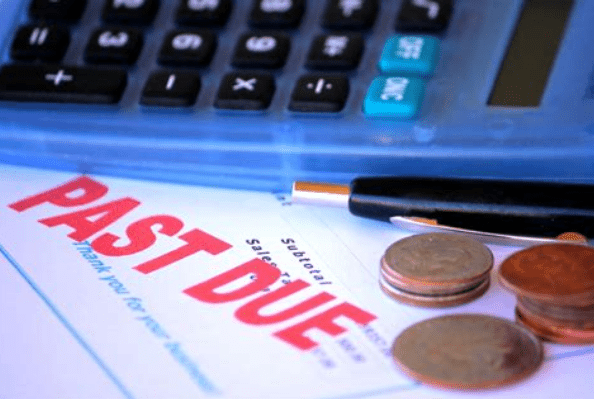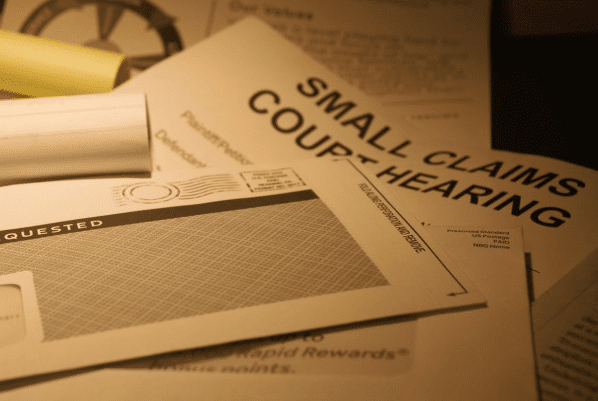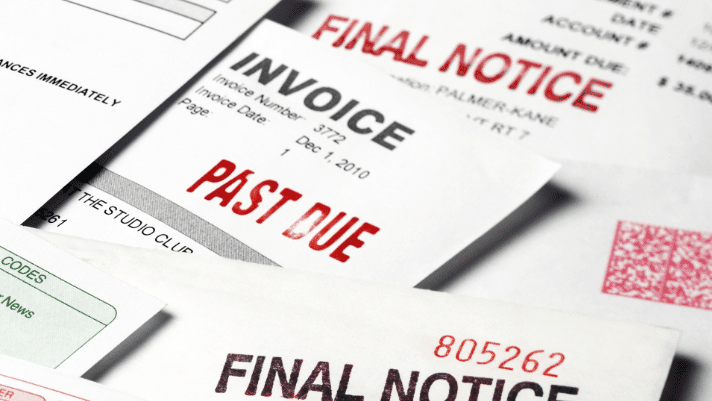Hey there! Did you know that you’ve got 20 days to respond to a debt lawsuit in Maine? But don’t worry, we’ve got your back! To make sure you beat that deadline, here’s what you need to do: draft and file a written Answer to the Summons and Complaint. In your Answer, be sure to tackle each claim against you and assert your affirmative defenses. Once you’ve got that sorted, file the Answer with the court and don’t forget to send a copy to the opposing attorney. And guess what? ZumaZip is here to make this whole process a breeze for you! We’ve got all the tools and guidance you need to tackle this challenge head-on. Let’s get started!
Ignoring debts can sometimes lead to legal action, especially when dealing with aggressive debt collectors like Covington. However, understanding your rights and knowing how to respond can help you navigate the legal process successfully.
In Maine, there are two ways debt collectors can sue you: through Small Claims court for amounts up to $6,000, or through District Court for larger amounts. If you’re sued in District Court, you’ll receive a Complaint and Summons detailing the allegations and amount owed.
Responding promptly is crucial in District Court cases to preserve your rights. The Answer to the Complaint and Summons is vital, and accuracy is key.
Here’s what you need to know about filing an Answer in Maine, whether you seek assistance or handle it yourself.
Table of Contents
- Deadlines
- Steps to Respond
- Statute of Limitations in Maine
- Maine Legal Aid Organizations
- What is ZumaZip?
- Key Takeaways
- Guides for Other States
Maine Deadline for Answering a Debt Collection Summons
20 days – You only have 20 days to file an Answer with the court after you’re served the Summons and Complaint, according to Maine Rules of Civil Procedure, Rule 12.
Receiving the Summons and Complaint in person can be unsettling, but it’s essential to understand its contents. These documents outline crucial details, such as the reason for the lawsuit, the amount being claimed, and the identity of the suing party. If the lawsuit stems from debt collection, expect information about the original creditor as well.
Your response to these documents will significantly impact the trajectory of your case. Ignoring them can lead to a default judgment against you, resulting in a loss. However, responding promptly allows you to defend yourself in court.
While you might not need to file an Answer if you agree with the debt’s validity, various scenarios warrant a response. This includes situations where you dispute owing the debt, allege creditor violations, disagree with the debt’s circumstances or amount, or possess evidence of prior payment or settlement.
Filing an Answer and presenting your case in court is crucial whenever you wish to contest the plaintiff’s claims or provide additional information. If you require assistance meeting the deadline or crafting your Answer document, ZumaZip offers valuable support. Our software guides you through the Answer formulation process and ensures timely filing.
Remember, along with filing a copy with the courts within the 20-day deadline, it’s essential to send a copy to the plaintiff or their attorney.
Maine Answer to Summons Forms
Responding to a Summons and Complaint with the appropriate Answer is crucial, and getting it right is essential for your case. Your Answer must contain specific elements, including court, case, and party information, responses to each paragraph in the received documents, and affirmative defenses explaining why you contest the debt.
Crafting an Answer that meets all requirements can be daunting, especially if you’re doing it from scratch. ZumaZip’s Answer form simplifies this process by guiding you through the necessary steps. Input your details, answer a few questions, and let the software generate a correctly formatted Answer document ready for submission to the courts.
Alternatively, you can utilize Maine’s Sample Answer Form if you prefer to handle it yourself. This form serves as a general template for responding to civil lawsuits like debt collection cases. However, note that it may have limited space for listing affirmative defenses if the provided options don’t fully apply to your situation.
Answer Filing Fees for Maine
Filing your Answer with the courts in Maine doesn’t incur any fees. You can deliver it in person to the court clerk without any cost. However, if you choose to mail it, you’ll need to cover the certified mail expenses to ensure it’s delivered and signed for before the deadline.
Additionally, you must send a copy of your Answer to the plaintiff or their attorney, also via certified or express mail.
Aside from these postage charges, there are no filing fees for submitting an Answer in Maine.
ZumaZip can handle the filing process for you, making it hassle-free.
Steps to Respond to a Debt Collection Case in Maine
Responding to a debt collection case in Maine is crucial to protect your rights and potentially avoid unfavorable outcomes. Here’s a step-by-step guide to help you navigate the process:
- Create Your Answer Document: Start by drafting your Answer, which must include specific information in the correct format. You can extract this information from the Summons and Complaint documents you received. Ensure that your Answer includes essential details like district court information, party names, and your personal information. You can use sample Maine forms or rely on ZumaZip to handle the formatting and legal language for you.
- Draft Your Response: Once you have the proper format, focus on the content of your Answer. Address each claim made in the Complaint and assert affirmative defenses as necessary. This is your opportunity to present your side of the story and challenge the allegations against you.
- File and Serve Your Answer: After completing your Answer, file it with the court clerk within the specified timeframe. Additionally, you must serve a copy of your Answer to the plaintiff. Ensure that all required parties receive the document in a timely manner to comply with legal procedures.
By following these steps and responding promptly to the debt collection lawsuit, you can protect your rights and potentially achieve a favorable outcome in your case.
1. Answer each claimed listed in the Complaint
Each issue of the complaint is listed by paragraph on the Complaint you received to start the process. You will need to answer each of these issues by referencing their paragraph number and responding in one of three ways:
- Admit.
- Deny.
- Deny due to lack of knowledge.
Most attorneys recommend denying as many claims as possible. Denying a claim will force the plaintiff to prove it. If they can’t, they won’t have a case. Denying due to lack of knowledge is like saying, “I don’t know,” and it also pushes the plaintiff to prove the clam.
ZumaZip makes it simple to respond the right way.
This is all you need to include in this section of the Answer document. Your reasons for your answer will be in the following section.
2. Assert affirmative defenses
Affirmative defenses are the legal reasons that you feel the plaintiff is not entitled to what they are asking. There are a lot of different reasons you might not legally be required to pay a debt. The most common affirmative defenses include:
- The entity suing you is not the party that you entered into an agreement with, and there is no clear evidence that they have a right to collect on the debt.
- The statute of limitations has expired, and court action is unlawful.
- The original creditor was in violation of the contract or agreement.
- The contract was voided by misconduct or violations of terms.
- You are the victim of identity theft, and the entity failed to gather appropriate identification before creating the account.
- You did not authorize creation of the account, or enter into a verbal, implied, or written contract with the entity.
With ZumaZip you can make the right affirmative defenses the right way.
There may be many other legal stances that may be a good defense for your position. It is important to note that not being able to afford to pay the debt is not an acceptable affirmative defense. Your counterclaims against the plaintiff can also be listed in your affirmative defenses section.
If you’re not sure what to include in your affirmative defenses, getting the advice of an attorney may be helpful. But, if you are using Solosuit’s powerful Answer document software, you can get some clarification on your affirmative defenses as you create your response.
3. File the answer with the court and serve the plaintiff
Your final step is to file the answer with the court and serve the plaintiff or their attorney. You can hand deliver your Answer to the court clerk, or you can mail it to them. You can mail the copy to the Plaintiff and/or their attorney as well.
If you choose to use the mail service, make sure you choose certified or express mail so that the recipient must sign for it and you will receive confirmation of delivery. This is important to ensure that you can prove you filed the Answer before the deadline.
If you are cutting it close to the deadline, you can mail your Answer to the courts using overnight mail service. If you are creating your Answer with ZumaZip, we can overnight the document to the court clerk for you.
Statute of Limitations on Debt in Maine
Like other states, Maine has laws that limit how long you can be sued for a debt. This restriction is called a statute of limitations. The statute of limitations on debt is six years in Maine, starting from the consumer’s last action on the account.
If a debt is older than six years, the debt collector cannot sue you or file a civil action against you. If you are certain that the debt is past the Maine statute of limitations, this is an excellent affirmative defense on your Answer document.
However, the statute of limitations on a judgment is 20 years in Maine, meaning that if you are sued for a debt and lose, then the statute of limitations then becomes 20 years. That is a long time.
The table below further outlines the statute of limitations on different types of debt in Maine:
| Debt Type | Deadline |
|---|---|
| Credit Card | 6 years |
| Medical | 6 years |
| Sudents Loan | 6 years |
| Auto Loan | 6 years |
| Mortgage | 6 years |
| Personal Loan | 6 years |
| Judgment | 20 years |
| Me. Stat. tit. 14 § 752 |
Maine Legal Aid Organizations
Even if you think that you have everything under control, it is a good idea to get the advice of an attorney before proceeding. If you are not able to afford legal services, every state has at least one government-funded organization that provides free legal services to people just like you. Using a service like Solosuit to file your response documents will reduce the services you need going forward. There is one free legal service in the state of Maine.
Pine Tree Legal Assistance, Inc.
Key Takeaways:
- Upon receiving a Summons and Complaint from a debt collector, it’s crucial to respond promptly to protect your rights.
- Your response should take the form of a formal Answer document, which must adhere to specific formatting requirements and include relevant information and responses.
- Services like Solosuit or Maine’s provided forms can simplify the process of creating your Answer, making it as easy as filling in the blanks and checking a few boxes.
- The key steps to filing your Answer include addressing each allegation in the Complaint, stating affirmative defenses, and submitting the document to the court while ensuring the plaintiff’s attorney receives a copy.
- It’s essential to be aware of the statute of limitations on debt, which in Maine is six years.
- If facing a debt lawsuit serves as a wake-up call for your financial well-being, consider exploring personal finance online courses to regain control of your finances and prevent future legal issues.
What is ZumaZip?
ZumaZip is a convenient solution designed to streamline your response to a debt collection lawsuit. Here’s a breakdown of what you can expect when you use ZumaZip:
Firstly, you’ll access our user-friendly web application, which guides you through the process step by step. You’ll be prompted to answer a series of questions related to your specific situation. Once you’ve completed the questionnaire, you have the option to either print out the finalized forms and mail them to the appropriate courts yourself, or you can opt to utilize ZumaZip’s services to file them on your behalf. Additionally, if you choose this option, an attorney will review your document for added peace of mind.
If you’re seeking guidance on how to effectively respond to a debt collection lawsuit, ZumaZip can provide the assistance you need. Feel free to explore our FAQs for more information on what ZumaZip has to offer.
What if I haven’t been sued yet?
If you’ve only received a collections notice, but not a lawsuit, the best way to respond is with a Debt Validation Letter. When a debt collector contacts you in any way, whether it’s by phone or mail, you can respond by formally requesting a debt validation with a Debt Validation Letter . This letter notifies the collector that you dispute the debt and forces them to provide proof you owe the debt. They can’t call you or continue collecting until they provide validation of the debt. This flowchart shows how you can use a Debt Validation Letter to win.
Get started with a Debt Validation Letter here.
How to Answer a Summons for debt collection in all 50 states
Here’s a list of guides on how to respond to a debt collection lawsuit in each state:
- Alabama
- Alaska
- Arizona
- Arkansas
- California
- Colorado
- Connecticut
- Delaware
- Florida
- Georgia
- Hawaii
- Idaho
- Illinois
- Indiana
- Iowa
- Kansas
- Kentucky
- Louisiana
- Maine
- Maryland
- Massachusetts
- Michigan
- Minnesota
- Mississippi
- Missouri
- Montana
- Nebraska
- Nevada
- New Hampshire
- New Jersey
- New Mexico
- New York
- North Carolina
- North Dakota
- Ohio
- Oklahoma
- Oregon
- Pennsylvania
- Rhode Island
- South Carolina
- South Dakota
- Tennessee
- Texas
- Utah
- Vermont; Vermont (Small Claims court)
- Virginia
- Washington
- West Virginia
- Wisconsin
- Wyoming
Guides on how to beat every debt collector
Hey there! Facing off against a debt collector can feel like a daunting challenge, but fear not! We’re here to help you navigate through it all with our handy guides designed to assist you in beating every debt collector you encounter. Whether you’re facing a new lawsuit or dealing with a persistent collector, we’ve got your back. Stay positive, stay informed, and let’s tackle this together!
- Absolute Resolutions Investments LLC
- Accredited Collection Services
- Alliance One
- Amcol Clmbia
- American Recovery Service
- Asset Acceptance LLC
- Asset Recovery Solutions
- Associated Credit Services
- Autovest LLC
- Cach LLC
- Cavalry SPV I LLC
- Cerastes LLC
- Colinfobur
- Covington Credit
- Crown Asset Management
- CTC Debt Collector
- Cypress Financial Recoveries
- Delanor Kemper & Associates
- Eagle Loan of Ohio
- Educap
- Estate Information Services
- FIA Card Services
- Forster & Garbus
- Freshview Solutions
- Fulton Friedman & Gullace LLP
- Harvest Credit Management
- Howard Lee Schiff
- Hudson & Keyse LLC
- Integras Capital Recovery LLC
- Javitch Block
- Jefferson Capital Systems LLC
- LVNV Funding
- Mannbracken
- Mariner Finance
- Medicredit
- Michael J Adams PC
- Michael J Scott
- Midland Funding LLC
- Mullooly, Jeffrey, Rooney & Flynn
- Mountain Land Collections
- MRS Associates
- National Collegiate Trust
- Nationstar Foreclosure
- Northstar Capital Acquisition
- NCEP LLC
- NRC Collection Agency
- OneMain Financial
- Palisades Collection LLC
- Pallida LLC
- Paragon Revenue Group
- Pinnacle Collections Agency
- PMAB LLC
- Portfolio Recovery Associates
- Provest Law
- PYOD LLC
- Reunion Student Loan Finance Corporation
- Revenue Group
- Regents and Associates
- RSIEH
- Salander Enterprises LLC
- Second Round Sub LLC
- Security Credit Services
- Sherman Financial Group
- Suttell and Hammer
- T-Mobile
- Transworld Systems
- Tulsa Teachers Credit Union
- UCB Collection
- Velo Law Office
- Velocity Investments
- Waypoint Resource Group
- Weinberg and Associates
- Wolpoff & Abramson
Settle your medical debt
Having a health challenge is stressful, but dealing medical debt on top of it is overwhelming. Here are some resources on how to manage medical debt.
- Am I Responsible for My Spouse’s Medical Debt?
- Do I Need a Lawyer for Medical Bills?
- Do I Need a Lawyer to Fight Medical Bill Debt?
- Does Bankruptcy Clear Medical Debt?
- How Much Do Collection Agencies Pay for Medical Debt?
- How to Find Medical Debt Forgiveness Programs
- Is There a Statute of Limitations on Medical Bills?
- Medical Debt Statute of Limitations by State
- Summoned to Court for Medical Bills — What Do I Do?
- Summoned to Court for Medical Bills? What to Do Next
Stop calls from Debt Collectors
Do you keep getting calls from an unknown number, only to realize that it’s a debt collector on the other line? If you’ve been called by any of the following numbers, chances are you have collectors coming after you, and we’ll tell you how to stop them.



































